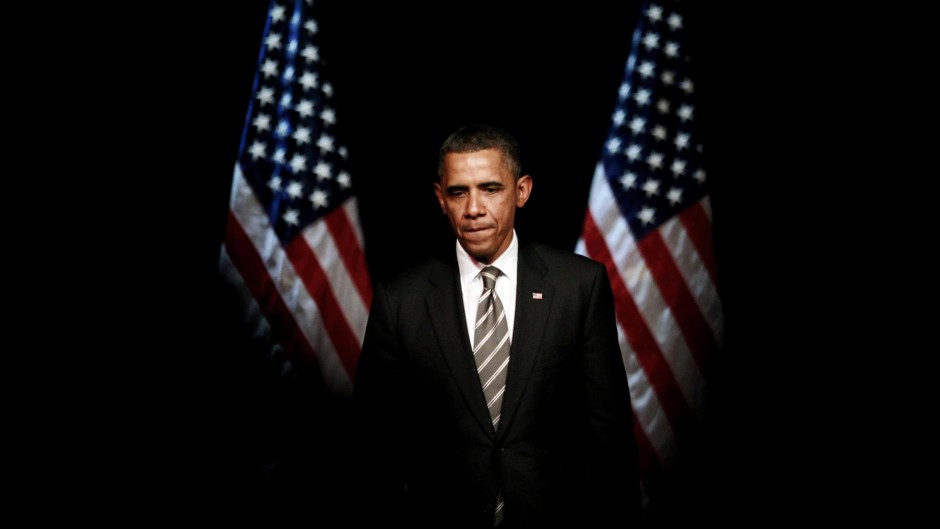A few hours before a 72-hour humanitarian truce in the Gaza war was supposed to start, followed immediately by talks in Cairo with the aim of achieving a more durable ceasefire, White House spokesman Josh Earnest scolded Israel.

An Israeli artillery strike that had mistakenly hit a United Nations school in Gaza, causing 15 fatalities, was “totally unacceptable and totally indefensible,” he said, alluding to President Barack Obama’s mounting concerns over the number of Palestinian civilians who have been killed since the war erupted on July 8.
Since then, Obama has emphasized two themes. “No nation should accept rockets being fired into its borders,” he said on July 18, referring to Hamas’ bombardment of Israel. “I also made it clear that the United States and our friends and allies are deeply concerned about the risks of further escalation and the loss of more innocent life.”
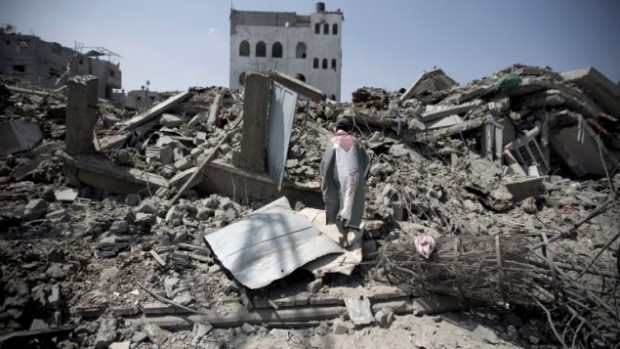
By yesterday, the Palestinian death toll had reached 1, 441, surpassing the number of Palestinians killed during Operation Cast Lead, Israel’s invasion of Gaza in January 2009. (Three civilians in Israel have been killed by rocket and mortar fire, and 61 Israeli soldiers have fallen).
In a reference to the bloodshed in Gaza, U.S. Defence Secretary Chuck Hagel expressed misgivings, too, but reiterated Washington’s support for Israel’s right to self-defence and acknowledged that the Pentagon has shipped a fresh batch of weapons — mortar rounds, rocket launchers and grenades — to Israel.
The Obama administration’s decision to publicly reprimand Israel, its chief ally in the Middle East, was symptomatic of the tensions that have been building since July 17, when the Israeli army invaded the Gaza Strip after a 10-day blitz by the air force.
The White House’s admonition of Israel came on the heels of an Israeli TV report claiming that Obama and Israeli Prime Minister Benjamin Netanyahu had conducted a tense telephone conversation over the war, the fourth in Gaza since 2006.
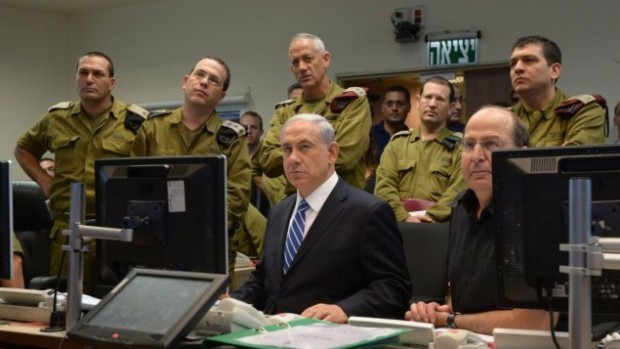
According to a transcript released by Channel 1, Obama demanded an immediate and unconditional end to Israel’s offensive, saying that “the images of destruction in Gaza are distancing the world from Israel’s position.”
Obama added that Qatar and Turkey, both of which are pro-Palestinian, would launch negotiations with Hamas with a view to ending the war. In a further comment, he said that Israel would have to lift its naval blockade of Gaza, which has been in effect since 2007, the year Hamas seized full control of Gaza.
Netanyahu countered that neither Turkey nor Qatar are fair mediators, and that a ceasefire proposal U.S. Secretary of State John Kerry had presented last week, following talks in Paris with Turkey’s and Qatar’s foreign ministers, was unrealistic.
Israel and the United States both denied the Channel 1 report, though it seemed plausible. Neither side, however, denied that Kerry’s attempt to hammer out a truce in consultation with the Turkish and Qatari foreign ministers, Ahmet Davutoglu and Khalid al-Attiyah, had been less than successful and probably a fiasco.
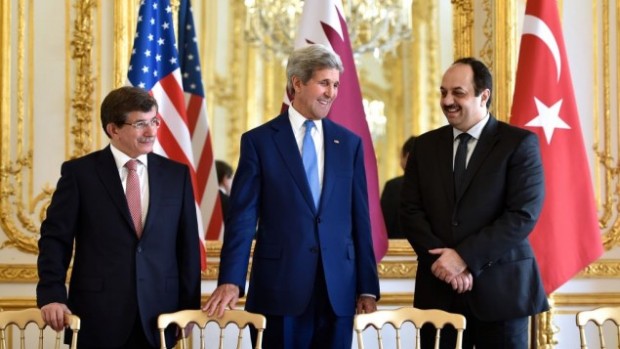
According to reports, Israel, the Palestinian Authority, Egypt, Jordan and Saudi Arabia all concurred that Kerry’s diplomatic efforts had not only undermined prospects of attaining an early ceasefire but had strengthened Hamas’ resolve to fight on.
One Israeli commentator went as far as to accuse Kerry of betraying Israel.
Stung by the criticism, U.S. State Department spokesperson Jen Psaki expressed surprise that the draft of Kerry’s ceasefire plan, based on an Egyptian proposal Israel had accepted and Hamas had rejected, had been leaked to the media.
Seeking to dampen the controversy and defend Kerry, Obama’s deputy national security advisor, Tony Blinken, described the leaked document as merely a “discussion paper,” and declared that “Israel has no better friend” and “no stronger defender” than the United States.
Elaborating on this theme, U.S. State Department deputy spokesperson Marie Harf called Israel’s critique of Kerry “offensive and absurd,” and asserted that the United States had given Israel “a level of support which has been, quite frankly, unprecedented in our history.”
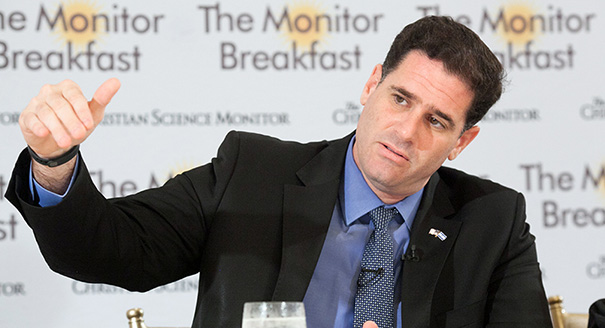
Alarmed by Washington’s heated reaction, Israel’s ambassador to the United States, Ron Dermer, said, “This is not coming from the prime minister.” Netanyahu, he noted, “appreciates” Kerry’s diplomacy. Having attempted to insulate Netanyahu from American wrath, Dermer ascribed Israel’s critique of Kerry to the Israeli press.
These testy exchanges appear to have benefited Israel. The United States has since assured the Israeli government that its concerns and fears will be treated with the utmost seriousness.
Obama basically agrees with Netanyahu’s twin demands. As he put it, “Ultimately, any lasting solution to the Israeli-Palestinian conflict must ensure the disarmament of terrorist groups and the demilitarization of Gaza.”
Kerry has underlined this point: “We believe that any process to resolve the crisis in Gaza in a lasting and meaningful way must lead to the disarmament of Hamas and all terrorist groups. And we will work closely with Israel and regional partners and the international community in support of this goal.”
In a speech on July 29 to the Conference of Presidents of Major American Jewish Organizations, Susan Rice, Obama’s national security advisor, spoke of the bond between the United States and Israel.

“Israel is not alone — not in war and not in peace,” she stated, saying that the United States is committed to maintaining Israel’s qualitative military advantage.
In short, while firmly supporting Israel’s right to defend itself against aggression, Washington’s objectives are clear: to bring the Gaza war to a speedy conclusion so as to minimize Palestinian and Israeli casualties, to create a new order in Gaza by defanging Hamas, to set the stage for a resumption of peace talks between Israel and the Palestinians, and to restore a semblance of stability in a region already boiling over with grave conflicts in Syria and Iraq.
These are ambitious goals, and it remains to be seen whether they are attainable.
